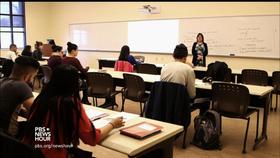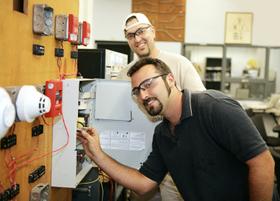Massive Open Online Courses, dubbed MOOCs by most educators, have become the buzzword for higher education. Providing free, online education on a global, rather than a campus, level has serious implications for the world of higher education overall. Despite the obvious benefits of MOOCs (free, readily available, etc.), many educators are skeptical of their actual value in the real college experience. How exactly did MOOCs make it on the scene and what does their future hold? The answers may depend on who you ask.
Anatomy of a MOOC
According to the Washington Post, a Massive Open Online Course is a college-level class offered for free online. The courses are available to anyone with an Internet connection, whether or not they are currently enrolled in a college or university. The classes allow students to study and learn on their own time, and at any location, unlike traditional courses that follow a set schedule in a classroom.
MOOCs have garnered interest from a number of institutions of higher education, particularly for-profit schools and newer startups in online education. Coursera, one of the best-known companies offering MOOCs at this time, has partnered with institutions like Harvard and Stanford to bring the MOOC model to those prestigious college campuses. Other MOOC companies, including Udacity and edX, are also busy signing up college partners for their online courses.
This video explains MOOC.
What’s Good
There are obvious benefits to MOOCs, at least on the surface of the concept. Free college classes could change the face of higher education in the United States, making it more affordable and accessible to a broader range of students. Instead of teaching students locally, college professors could reach a global classroom, with thousands of students benefitting from the material taught online.
MOOCs could also provide additional options in the blended learning model. Research has suggested that a combination of online and in-classroom learning may be the most effective way to help students grasp complex subjects. MOOCs open the door to more online learning opportunities, perhaps expanding options for professors who want to add the online experience to their own college classrooms.
What’s Not so Hot
Despite the obvious potential for MOOCs, there is also plenty of concern circulating about this new education model – and probably with good reason. New and unproven, many educators are voicing concern about the ability to evaluate the curriculum standards. Professors have said they don’t have the time or resources to assess online courses to determine whether they are rigorous enough for a college curriculum.
There is also evidence to suggest that online learning does not produce the same positive results as learning in the classroom. Students participating in online classes must have an extraordinary sense of self-discipline to keep up with the rigors of online courses with no one looking over their shoulder or holding them accountable face-to-face. Some studies have found a lower rate of completion with students who take at least a portion of their college classes online.
This TEDx Talk describes the potential of using MOOC.
Studying the Options
To determine whether MOOCs really could unleash a whole new approach to higher learning, educators are doing what they do best – researching the issue. Inside Higher Ed reports on a recent study of MOOCs by the Instructional Technology Council, which showed that although 44 percent of community colleges have said they are considering MOOCs, only one percent of schools are actually doing so. Another 42 percent said they have no plans to bring MOOCs into their learning environment at this time.
“As would be expected with something so new, campuses are cautious in their approach,” the ITC report states. “Many community colleges are skeptical that a large-enrollment solution is appropriate for campuses that believe in smaller, more personalized instruction.”
Another study of MOOCs has been launched by the Bill and Melinda Gates Foundation. The Huffington Post reports that the foundation provided a grant to MIT to develop a new computer science course through edX. MIT will also partner with community colleges to experiment in the use of this course. In addition, the foundation is awarding $13 million in grants to other institutions and organizations to study MOOCs and create new courses.
This video explains how to be successful taking courses on MOOC platforms.
Exploring the Possibilities
While it is doubtful that MOOCs will be taking over the jobs of college professors any time soon, there are many ways these online courses could be successfully incorporated into the college learning experience. Another report at Inside Higher Ed explores the possibility of using MOOCs in remedial education, to help bring students up to speed in basic courses like math and writing before embarking on more rigorous college coursework.
In addition, the Instructional Technology Council provides additional options for using MOOCs in the college classroom, including:
- Using a MOOC as an additional textbook or classroom resource
- Incorporating online classes into a college’s learning management system
- Awarding credit for MOOCs through the institution’s own assessment system, to ensure curriculum standards are met
- Using MOOCs to help students gauge whether they can be successful in an online learning environment
- Using MOOCs to help developmental learners get the additional instruction they need to succeed in more challenging college courses
While MOOCs are still a very new phenomenon in the world of higher education, they are garnering plenty of interest around the country. Although many community colleges are still hesitant to fully embrace this new instructional model, further research that is currently being done may turn the tide of public opinion on these online courses. Are MOOCs the wave of the future in higher education? Time and studies will certainly tell.
Questions? Contact us on Facebook. @communitycollegereview






















































































